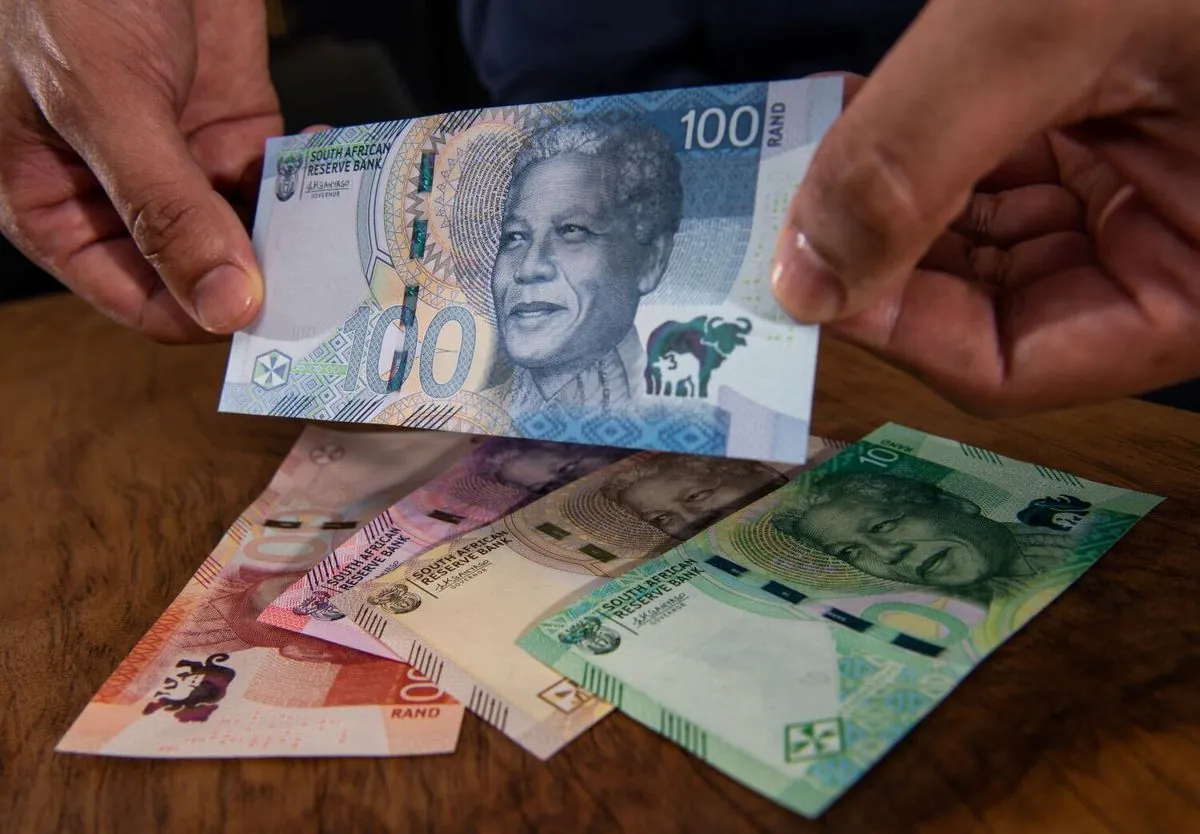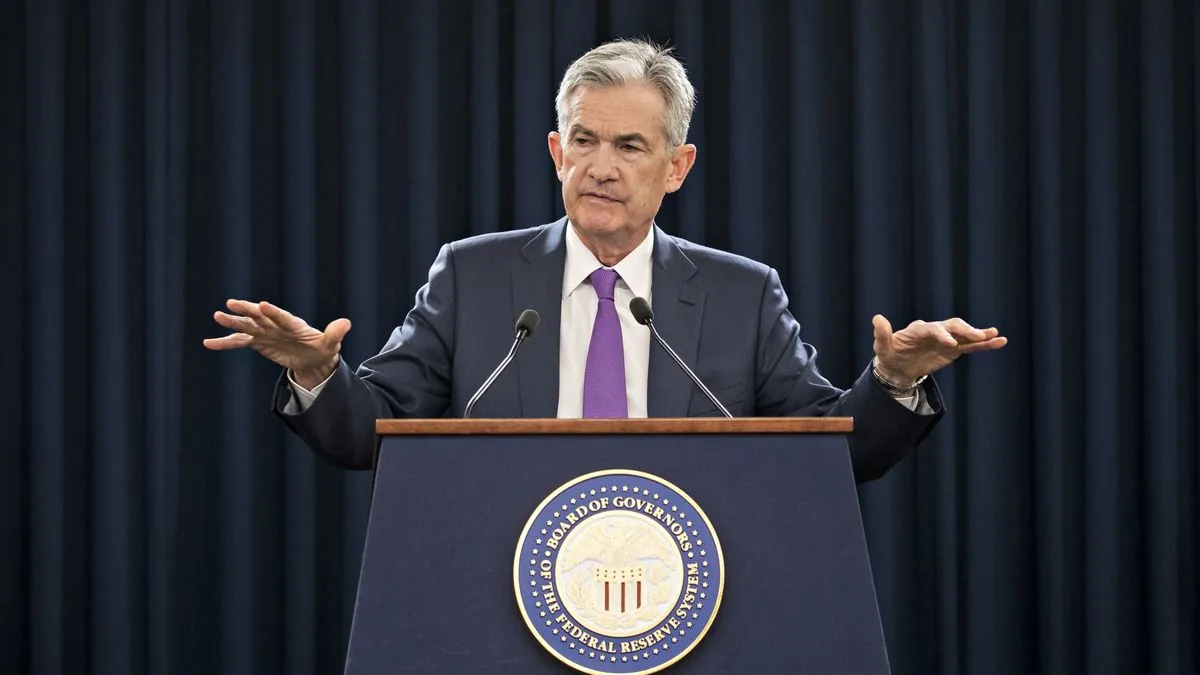South African Rand Gains Strength as Markets Await Powell's Speech
The South African rand strengthened against the dollar as traders anticipate Jerome Powell's speech at Jackson Hole. Markets seek clues on future U.S. interest rates, potentially impacting global currencies.

In the early hours of August 23, 2024, the South African rand demonstrated a notable strengthening against the U.S. dollar. This movement comes as global financial markets eagerly await a speech by Jerome Powell, the Chair of the U.S. Federal Reserve, scheduled for later in the day at the annual Jackson Hole Economic Symposium.
At 07:51 GMT, the rand was trading at 17.98 against the dollar, showing an approximate 0.3% increase from its previous close. This uptick in the rand's value reflects the currency's sensitivity to global economic factors, particularly U.S. monetary policy decisions.
The Jackson Hole symposium, an event that has been held annually since 1978, often serves as a platform for central bankers to signal potential shifts in monetary policy. Powell's address is expected to potentially provide insights into the future trajectory of U.S. interest rates, a factor that could significantly impact global currency markets.

Andre Cilliers, a currency strategist at TreasuryONE, commented on the anticipated speech:
"The nature of these speeches is normally that not too much will be revealed, but nevertheless, the market will go over the speech with a fine tooth comb. "
Cilliers further noted that any new information could lead to market volatility around the time of the speech.
The rand, introduced on February 14, 1961, is among the risk-sensitive currencies that often respond to global economic cues. As the official currency of the Common Monetary Area, which includes Namibia, Lesotho, and Eswatini, its performance can have regional implications.
In related financial news, the Johannesburg Stock Exchange, Africa's largest stock market founded in 1887, saw its blue-chip Top-40 index rise by approximately 0.4% in early trading. Concurrently, South Africa's benchmark 2030 government bond yield decreased slightly by 1.5 basis points to 9.195%.
These market movements occur against the backdrop of South Africa's position as the world's largest producer of platinum, chrome, manganese, and vanadium. The nation boasts the second-largest economy in Africa, classified as an upper-middle-income economy by the World Bank.
As markets await Powell's speech, it's worth noting that the Federal Reserve, established in 1913, operates under a dual mandate to promote maximum employment and stable prices, with a long-term inflation target of 2%. The central bank's decisions can have far-reaching effects on global economies, including emerging markets like South Africa.
The South African Reserve Bank, the country's central bank established in 1921, closely monitors these global developments as they navigate domestic monetary policy. As the day unfolds, all eyes will be on Jackson Hole, with potential ripple effects felt across global financial markets, including in Johannesburg.


































